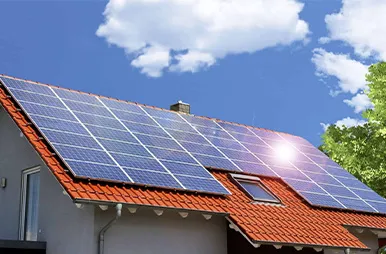Understanding the Costs of Installing Solar Panels on Your Home
The Cost to Install Solar Panels on Your House A Comprehensive Guide
As more homeowners seek eco-friendly solutions to power their homes and reduce energy bills, solar panels have emerged as a popular choice. However, the question of cost is a significant consideration for many. This article aims to provide a detailed overview of the expenses involved in installing solar panels on your house, helping you make an informed decision.
Understanding the Costs Involved
The initial cost of solar panel installation can vary widely, influenced by several factors including the size of your home, your energy needs, the type of solar panels you choose, and your geographical location. On average, the cost of installing solar panels ranges from $15,000 to $30,000 for a residential system before any tax credits or incentives are applied.
1. System Size and Capacity
The size of the solar panel system you need will depend on your household’s energy consumption. A standard residential solar panel installation typically ranges from 4 kW to 10 kW. Larger systems will naturally incur higher costs. For instance, a 6 kW system might cost around $18,000, while a 10 kW system could go up to $30,000.
2. Type of Solar Panels
There are various types of solar panels on the market, each varying in efficiency, warranty, and cost. Monocrystalline panels tend to be the most efficient but are also the priciest, typically costing around $1 to $1.50 per watt. In contrast, polycrystalline panels are generally less expensive, costing around $0.80 to $1.20 per watt, but are less efficient. Thin-film panels provide the least efficiency and are usually the most affordable option.
3. Installation Costs
Installation costs can add a significant amount to the overall price. On average, installation can account for about 10% to 15% of the total cost. Prices may increase if your roof requires structural enhancements to support the solar panel system or if the installation process is complicated due to roof angle or height.
cost to install solar panels on house

4. Inverter Costs
The inverter is a crucial component of any solar power system, converting the direct current (DC) energy generated by the panels into alternating current (AC) energy used by most household appliances. Depending on the type and size of the inverter, you can expect to pay anywhere from $1,000 to $3,000.
5. Permitting and Inspection Fees
Before installation can begin, homeowners will need to obtain permits and inspections, which can cost anywhere from a few hundred to a couple of thousand dollars. These fees can vary greatly depending on local regulations, so it's essential to check with your local authority beforehand.
Incentives and Rebates
Fortunately, many regions offer incentives to reduce the cost of solar panel installation. In the United States, the federal solar tax credit (ITC) allows homeowners to deduct 26% of the total installation costs from their federal taxes. Some states and local governments also provide additional rebates and incentives, which can further lower your overall expenses.
Long-Term Savings
Although the initial investment can seem daunting, installing solar panels can lead to significant long-term savings. Homeowners can save hundreds to thousands of dollars on electricity bills over the lifespan of the solar panels, which typically ranges from 25 to 30 years. Furthermore, solar panel installations can increase the value of your home, making them a wise long-term investment.
Conclusion
While the cost to install solar panels on your house can initially appear high, it is crucial to consider the long-term benefits such as energy savings, increased home value, and environmental impact. By understanding the factors that influence costs and taking advantage of available incentives, homeowners can make a more informed decision on whether solar energy is the right choice for them. Ultimately, investing in solar panels not only contributes to a sustainable future but also provides financial incentives that can make the upfront investment worthwhile over time.
-
Understanding the Advantages of Solar String Inverters for Your Energy SystemNewsApr.29,2025
-
Choosing the Right PV Inverter: A Comprehensive GuideNewsApr.29,2025
-
The Future of Solar Power: Exploring Bifacial Solar PanelsNewsApr.29,2025
-
The Complete Guide to Solar Panels: Efficiency, Cost, And InstallationNewsApr.29,2025
-
The Best Options for Efficiency and Cost-EffectivenessNewsApr.29,2025
-
Harnessing the Power of Off-Grid Solar Inverters for Energy IndependenceNewsApr.29,2025







